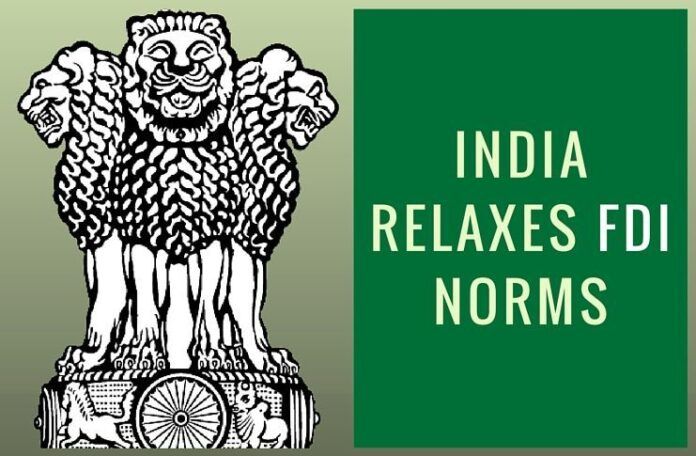
New Delhi
[dropcap color=”#008040″ boxed=”yes” boxed_radius=”8px” class=”” id=””]R[/dropcap]esponding to public expectations following the BJP’s stunning defeat in the Bihar assembly elections, the government on Tuesday announced the reforming and liberalising of norms for foreign investment in 15 sectors.
“Today’s (Tuesday) important decision brings in foreign investment-related reforms and liberalisation touching upon 15 major sectors of the economy,” Finance Minister Arun Jaitley told reporters here.
“Sectoral caps (on foreign investment) have been increased in some areas. Outdated conditionalities, along with sectoral caps have been removed or easened. Many areas have been put on the automatic (approval) route,” he added.
[dropcap color=”#008040″ boxed=”yes” boxed_radius=”8px” class=”” id=””]I[/dropcap]n this regard, Fitch Ratings said on Monday the BJP’s defeat in the Bihar elections is unlikely to have any major impact on India’s economy, but could complicate politics for the government. “The loss may complicate politics for the central government, but we don’t expect major implications on the economic front,” Fitch Ratings Asia-Pacific Sovereigns director Thomas Rookmaaker said in a statement.
“With continued opposition the government will likely continue to try and pass legislation via ad hoc political deals, and if that does not work, it may continue to resort to implementation of reforms at the state level,” Rookmaaker said.
An expert, however, has said the Bihar result is a setback for the BJP-led central government’s plans to pilot the Goods and Services Tax (GST) Bill through parliament.
“The opposition parties will become emboldened with the Bihar elections result, which will make it more difficult for the (Narendra) Modi government to go through with the GST Bill,” economist Arun Kumar, till recently a professor at Jawaharlal Nehru University here, told IANS.
[dropcap color=”#008040″ boxed=”yes” boxed_radius=”8px” class=”” id=””]T[/dropcap]he central government has set the target for implementing the pan-India GST from April next year, but it is currently stuck in parliament, especially over the cabinet’s nod to some changes recommended by a parliamentary panel, notably an extra one percent levy to compensate the states for potential tax losses.
The opposition parties have opposed the extra one percent GST levy as they feel this would not only push up prices, but also have a cascading effect.
In this connection, majority of Indian businesses are optimistic about the state of the economy improving in the next two quarters, although the last six months have not witnessed much of a change at the ground level, industry chamber Assocham’s latest survey showed.
“In the coming six months, there seems to be growing optimism in terms of the economic performance with 80 percent respondents feeling that the state of the Indian economy would be better,” said Associated Chambers of Commerce and Industry’s (Assocham) latest Biz Confidence survey.
(IANS)










